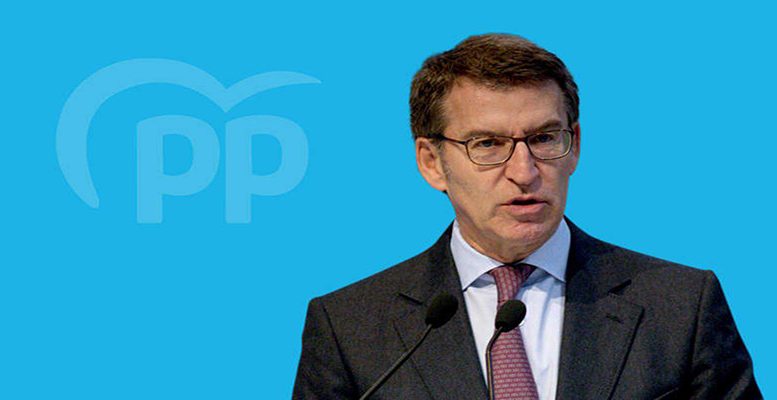José Hervás (Capital Madrid)| Spain is entering a situation of political deadlock. The result of the elections, in which the PP was the winning party with 136 seats, does not make it easy for Feijóo to form a new Executive as he does not have the necessary 176 seats, together with the 33 seats of VOX, to obtain the necessary majority required for the presidency. A tug-of-war is foreseen between all the parties of the parliamentary arc after the narrow margin of the Popular Party’s victory.
This situation leads to the paradox that, should Feijóo fail, as is likely to happen, in his attempt to form an executive, Pedro Sánchez would depend, in order to be re-elected, on the support of the votes of Junts per Catalunya, led by the fugitive from Spanish justice, Carles Puigdemont.
The former president of the Generalitat has already warned on Twitter, after learning the election results, that it is he who decides what his party will do “as Junts only look at what their voters want”. The formation of the government will depend on 1.61% of the votes cast in these elections, 391,619 voters who have opted for Junts.
Feijóo’s chances.
It is true that Feijóo could reach the 176 seats needed, if in addition to the votes of VOX he could count on the five seats obtained by the PNV, plus those of Coalición Canaria and the Unión del Pueblo Navarro.
This will not be easy. The PNV, whose president, Andoni Ortuzar, has not hesitated to speak of his good relations with Núñez Feijóo, has also made it a condition for giving its support to the Popular Party that the latter must not ally itself, under any circumstances, with VOX.
But Feijóo is going to try. In his speech on the balcony installed at the party’s national headquarters in Calle de Génova, and after recalling that he won the elections with eight million votes, he announced that he will ask the rest of the parties to allow his investiture, despite the fact that the sum of PP and Vox does not give an absolute majority.
After announcing that as leader of the party that won the elections, he said that he will begin talks to form a government and appealed directly to Sánchez not to block the formation of this new Executive.
Feijóo’s argument is that he won the elections with 136 seats, 14 more than Sánchez, while the government coalition has lost five seats. For this reason, the popular leader has claimed his right to form a government and will ask the rest of the parties to, in his words, “as is customary in democracy, allow the investiture of the candidate who has won the elections”.
According to the popular leader, there is no model that does not include either Feijóo or the express yes of Bildu and Junts per Catalunya to Sánchez so that he can govern. PP sources claim for Feijóo the same commitment that he has had in Vitoria so that the PSOE, which was the most voted party, can govern the city.
PP sources add that they would not understand a decision that was not in that direction. But Pedro Sánchez will not make it easy for them.
Sánchez will not make it easy.
In his brief speech after the final results of the elections were announced, the acting Prime Minister celebrated what he described as his party’s very good results, despite losing the elections, in front of the Ferraz headquarters. He has also shown his intention to govern after affirming that the backward-looking bloc has failed.
Sánchez stressed that they have won more votes and more seats than in the 2019 elections, despite the fact that the media were predicting a crushing defeat for the PSOE. He has not specified what he will do from now on, but the president has suggested that he will also present his candidacy for the investiture, saying that “there are many more of us who want Spain to move forward and this will continue to be the case”.
The parties will have to take the first steps quickly from now on. The constitution of the Cortes will take place on August 17. It will be crucial how the Congress’s presiding committee is constituted, especially who is to be its president, since it is the presidency of the Cortes that sets the timetable for holding the investiture, once the King has taken the decision to entrust a candidate with the attempt to form a government. In this case, arranging the agenda is no small matter.
But with the forces so divided among the elected representatives to the Congress of Deputies, the last thing to rule out is a repeat election. They may well be held in December.





